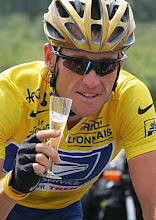
I would bet that none of you know what lycopene is. I bet this computer does not know what lycopene is because it is telling me that I’m spelling it wrong. And can I take back my first bet, because, now that I think about it, there’s a good chance that many of you know what lycopene is. It is featured on every Heinz Ketchup bottle.
Why does Heinz have dibs on lycopene? Save some for the rest of us!
Lycopene is a powerful antioxidant and it’s found in ketchup. And that is the extent of everyone’s knowledge on the matter.
Keep in mind, this is not a boring medical journal or anything. I correct myself; it is boring, and it is something. 1 out of 3 isn’t bad… then again, it is twice as bad as failing. It looks like I need to correct myself again.
To further enhance my knowledge on the ever-growing topic of lycopene, I consulted the self-proclaimed experts at Wikipedia. They gave me a definition and brief explanation, only I wanted to learn for myself-not just read something.
The first step was to learn the root of the word “lycopene.” From there, I could start drawing conclusions on my own and learn about what true powers lycopene possesses. “Lyco-” is Greek for wolf. In this case, the derivation of “-pene” comes from “periscum,” Greek for “peach.” I will call lycopene “wolf-peach” for the rest of the article, seeing as I’m not trying to sound smart and don’t need to refer to it by its Greek name. I speak English, therefore, I will refer to lycopene by its English name.
Wolf-peach is a red pigment found in tomatoes, and is a powerful antioxidant. It has been proven that those who consume high amounts of wolf-peach are at less of a risk to develop cancer. Blatantly misleading! That statement addresses the correlation. But correlation does not mean they are at all connected. People with high consumption of wolf-peach must eat tomatoes a lot, more specifically ketchup, as ketchup contains the most wolf-peach of all tomato products. People don’t just eat ketchup. They put it on something. Often hotdogs. So people who eat a lot of hotdogs have a lower chance of getting cancer. I’m considering making this healthy change and eating, at least, 10 hotdogs a day.
But that’s not the end of the correlation. Consider this scenario. Maybe hospital cafes don’t serve ketchup because it looks too much like blood. No one wants to see blood right after surgery. Those who have cancer are at the hospital a lot. Therefore, they don’t eat as much ketchup. There’s another connection between wolf-peach and cancer patients.
Is wolf-peach good for you, or is it merely a marketing scheme by Heinz.
It’s good for you. The experts say so.
Why does Heinz have dibs on lycopene? Save some for the rest of us!
Lycopene is a powerful antioxidant and it’s found in ketchup. And that is the extent of everyone’s knowledge on the matter.
Keep in mind, this is not a boring medical journal or anything. I correct myself; it is boring, and it is something. 1 out of 3 isn’t bad… then again, it is twice as bad as failing. It looks like I need to correct myself again.
To further enhance my knowledge on the ever-growing topic of lycopene, I consulted the self-proclaimed experts at Wikipedia. They gave me a definition and brief explanation, only I wanted to learn for myself-not just read something.
The first step was to learn the root of the word “lycopene.” From there, I could start drawing conclusions on my own and learn about what true powers lycopene possesses. “Lyco-” is Greek for wolf. In this case, the derivation of “-pene” comes from “periscum,” Greek for “peach.” I will call lycopene “wolf-peach” for the rest of the article, seeing as I’m not trying to sound smart and don’t need to refer to it by its Greek name. I speak English, therefore, I will refer to lycopene by its English name.
Wolf-peach is a red pigment found in tomatoes, and is a powerful antioxidant. It has been proven that those who consume high amounts of wolf-peach are at less of a risk to develop cancer. Blatantly misleading! That statement addresses the correlation. But correlation does not mean they are at all connected. People with high consumption of wolf-peach must eat tomatoes a lot, more specifically ketchup, as ketchup contains the most wolf-peach of all tomato products. People don’t just eat ketchup. They put it on something. Often hotdogs. So people who eat a lot of hotdogs have a lower chance of getting cancer. I’m considering making this healthy change and eating, at least, 10 hotdogs a day.
But that’s not the end of the correlation. Consider this scenario. Maybe hospital cafes don’t serve ketchup because it looks too much like blood. No one wants to see blood right after surgery. Those who have cancer are at the hospital a lot. Therefore, they don’t eat as much ketchup. There’s another connection between wolf-peach and cancer patients.
Is wolf-peach good for you, or is it merely a marketing scheme by Heinz.
It’s good for you. The experts say so.

No comments:
Post a Comment